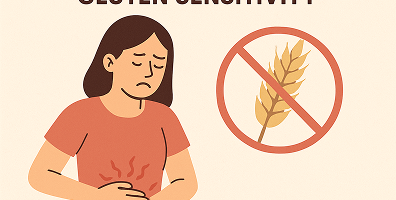The Truth About Diminished Ovarian Reserve (DOR)
Most women are told that Low AMH is a "ticking clock" that cannot be stopped. But with a functional fertility approach, Low AMH is viewed as a snapshot, not the whole story.
To have a healthy baby, you do not need hundreds of eggs. You need one high-quality egg. This is where the 90-day maturation window becomes your greatest asset.
The Science of Oocyte Competence and AMH
AMH is widely used in fertility clinics as a snapshot of ovarian reserve, meaning egg quantity, but it does not tell the full story of reproductive potential. While AMH levels correlate with the number of eggs available, they do not reliably predict egg quality or the ability to conceive and sustain a pregnancy.
What truly determines whether an egg can fertilize, divide, and develop into a viable embryo is oocyte competence, the egg’s biological readiness for early development. This competence is shaped by three interconnected biological systems that are rarely assessed in standard fertility testing.
Mitochondrial ATP Production
Eggs are the most energy-dependent cells in the human body. During the earliest stages after fertilization, the embryo relies entirely on the mitochondria inherited from the egg. If ATP production is impaired due to oxidative stress, inflammation, or nutrient insufficiency, embryo development may arrest even when fertilization occurs.
The Follicular Microenvironment
Egg quality is influenced by the biochemical environment surrounding the egg within the follicle. Hormonal balance, inflammatory signaling, oxidative stress, insulin regulation, and nutrient availability in follicular fluid all affect how an egg matures. A lower follicle count does not automatically indicate poor egg quality if this microenvironment is biologically supported.
The 90-Day Priming Window
Egg development occurs over approximately 90 days prior to ovulation, during which mitochondrial replication, antioxidant defenses, and cellular programming take place. This is why meaningful improvements in egg competence require sustained preparation over months rather than short-term or last-minute interventions.
Low AMH reflects a reduced ovarian reserve, but it does not mean diminished reproductive potential. The more relevant question is whether the eggs being recruited are developing under conditions that support normal fertilization and early embryo development.
Understanding this biology explains why low AMH is interpreted very differently depending on the clinical framework being used, and why a functional fertility approach looks beyond AMH alone to the conditions influencing egg and embryo development over time.
How Clinicians vs Functional Fertility Experts Interpret Low AMH
Once you understand the biology of egg and embryo development, it becomes clear why low AMH is interpreted very differently depending on the clinical framework being used.
| Factor | Conventional Fertility View | Fab Fertile Functional Audit |
|---|---|---|
| AMH Interpretation | A fixed measure of egg quantity | A dynamic marker reflecting follicular health |
| Primary Goal | Increase egg numbers per retrieval | Improve egg and embryo competence |
| Clinical Focus | Ovarian stimulation response | Mitochondrial function and cellular energy |
| Diagnostic Lens | Disease labels (DOR, POI) | Underlying imbalances affecting egg development |
| Sperm Evaluation | Standard semen analysis | DNA fragmentation testing using HALO (SCD) via Give Legacy |
| Timeline | Cycle-to-cycle outcomes | 90-day biological preparation window |
Why this matters: Low AMH reflects egg quantity, not egg potential. The Fab Fertile approach focuses on improving the biological conditions that influence whether eggs and sperm can form viable embryos.
So what does this mean for your fertility if you’ve just been told you have low AMH? Maybe your doctor recommended IVF, mentioned donor eggs, or ovarian platelet-rich plasma (PRP) as your only option. It’s overwhelming and feels like a dead end, but it’s not the whole story.The truth is: AMH is only one piece of your fertility puzzle. While it shows ovarian reserve, it doesn’t show egg quality, hormone balance, inflammation, or your actual potential to conceive, especially with the right personalized support.At Fab Fertile, we’ve helped hundreds of couples improve pregnancy success, often after years of trying and after being told their only options were donor eggs or experimental treatments like ovarian PRP.In this guide, we’ll cover:

- What AMH means
- Causes of low AMH you can control
- Functional testing beyond bloodwork
- Natural strategies to support egg quality
- Success stories, FAQs and next steps
Let’s get to the bottom of what’s possible — with clarity, empowerment, and evidence-based strategies, not assumptions or band-aid fixes.

What Is AMH and Why It Matters
Low AMH reflects egg quantity, not quality. Many women with low AMH still conceive naturally or with support.
If you are found to have low AMH, we will first focus on identifying the underlying imbalances or health issues that may be contributing to low AMH or poor egg quality. We run tests that may fall outside of basic or conventional protocols and take a whole-body approach to guide our assessment and we offer access to this testing worldwide.

Why AMH Matters for Fertility ?
AMH is just one piece of the fertility puzzle. Many women with low AMH can still conceive successfully with the right fertility strategies and support.
- Poor response to fertility medications.
- Fewer eggs retrieved in IVF.
- Higher chance of cycle cancellation.
- Shortened fertility window
Causes of Low AMH
Low AMH can result from many different reasons, including:
- Age-related decline (natural with age)
- Genetic factors
- Autoimmune conditions
- History of birth control use
- Chronic stress
- Thyroid dysfunction
- Environmental toxin exposure
Symptoms of Low AMH
If you have Low AMH, you may experience:
- Irregular or short menstrual cycles
- Difficulty conceiving
- History of poor IVF response
- Early miscarriage
- Early menopause symptoms

The Fab Fertile Approach to Low AMH
If you are found to have low AMH, we will first focus on figuring out what type of underlying imbalances or health issues you may have that are contributing to low AMH or poor egg quality. We will run tests that may fall outside of basic or conventional protocols and at your whole body systems to help in our assessments.

Why Functional Fertility Testing Matters ?
Most conventional tests only offer a snapshot. We use functional testing to uncover deeper imbalances like:
- Chronic inflammation
- Gut dysbiosis and hidden infections
- Hormonal or adrenal stress
- Chronic inflammation
- Vaginal and seminal microbiome issues

Additional Advanced Tests We May Recommend
These additional tests help uncover deeper root causes when needed — especially in complex fertility cases like low AMH:
- Autoimmune Screening (ANA): Detects hidden immune responses that may affect egg quality or implantation.
- Thrombophilia Panel: Screens for blood clotting issues that impair ovarian or uterine blood flow.
- Inflammation Markers (hs-CRP, Fibrinogen, Homocysteine): Identify chronic inflammation impacting hormone and vascular health.
Functional Fertility Strategies to Improve Low AMH

Nutrition & Anti-Inflammatory Diet
Whole-food, gluten-free, dairy-free meals rich in antioxidants, healthy fats, and detox nutrients. Think leafy greens, organic berries, and wild-caught fish to fuel mitochondria and reduce inflammation.

Hidden Gluten Sensitivity
Even if you're not celiac, gluten can still trigger inflammation that disrupts hormones. Non-celiac gluten sensitivity often goes undetected and might be sabotaging your egg health.
Podcasts by Sarah Clark
On the podcast, we discuss the latest research and functional strategies for improving egg quality and ovarian reserve in women with low AMH. Each episode offers practical insights to help you navigate fertility challenges with confidence.
Is your Low AMH a 'Quantity' issue or a 'Quality' issue? If you check more than two boxes, your 90-day window is currently being compromised:"
1. My clinic has not tested my gut health or systemic inflammation.
2. I have been told 'Donor Eggs' without an investigation into my mitochondrial health.
3. I’ve had a failed IVF cycle despite having "enough" eggs.
If you checked any of the above, a standard protocol won't work for you. You need a Functional Second Opinion
Low AMH
FAQ's
If I can’t increase my AMH, how do I get pregnant with Diminished Ovarian Reserve?
You don't need hundreds of eggs to have a baby; you need one high-quality egg. While AMH (quantity) is largely fixed, egg quality is a moving target. Our approach focuses on the 90-day maturation window, where we optimize mitochondrial energy and reduce systemic inflammation. By improving the environment where the egg develops, we can improve the outcome, even when the 'number' is low
What are the functional reasons for Low AMH that my clinic isn't testing for?
Conventional clinics treat Low AMH as an age-related 'fact.' In functional fertility, we look for underlying imbalances that artificially suppress ovarian function or damage egg quality. This includes hidden gut infections (GI-MAP), chronic oxidative stress, Vitamin D deficiency, and thyroid imbalances. A functional second opinion looks beyond the hormone to see why the body is down-regulating fertility
Why should I consider a functional approach before moving to Donor Eggs or another IVF cycle?
Many of our clients come to us after being told donor eggs are their only option. However, rushing into IVF with a compromised internal environment often leads to poor embryo quality and failed cycles. By spending 90 days addressing the biological 'soil,' you maximize the success of your next step, whether that's natural conception or a more successful, final IVF round
Science-Backed Insights: Why AMH Is A Poor Predictor Of Live Birth Outcomes
Anti-Müllerian Hormone (AMH) is a marker of ovarian reserve, but it’s only one piece of the puzzle. These science-backed studies show why AMH alone doesn’t determine your fertility potential and how environmental toxins, celiac and non-celiac gluten sensitivity, mitochondrial health, and targeted supplementation impact egg quality. A functional fertility lens reveals what matters when you have low AMH, diminished ovarian reserve, premature ovarian insufficiency, or recurrent pregnancy loss.
SOURCES
Is AMH a Reliable Fertility Predictor?
Why AMH Doesn’t Tell the Full Story About Egg Quality
Anti-Müllerian Hormone (AMH) is often used to assess ovarian reserve, but low AMH doesn’t mean you're infertile. Research shows AMH reflects egg quantity, not quality. Many people with low AMH conceive naturally or with IVF, especially when taking a functional fertility approach.“AMH levels should not be interpreted in isolation when evaluating fertility potential.”— Broer et al., Human Reproduction Update, 2014
Environmental Toxins and Diminished Ovarian Reserve
How Endocrine Disruptors Affect Egg Quality and AMH Levels
A growing body of evidence links toxins like BPA, phthalates, and pesticides with reduced ovarian reserve and low AMH. These exposures can silently interfere with hormone function, deplete follicles, and accelerate reproductive aging.“There is strong correlation between EDC exposure and impaired ovarian function.”— Zhang et al., Int J Environ Res Public Health, 2022
Celiac and Non-Celiac Gluten Sensitivity and Low AMH
Can Gluten Impact Hormone Balance and Fertility?
Even in non-celiac individuals, gluten sensitivity can drive inflammation and autoimmune activity, both of which are common in cases of low AMH or unexplained infertility. Removing inflammatory foods is a core principle of functional fertility care.“Gluten sensitivity may be an underrecognized factor in otherwise unexplained fertility issues.”— Isasi et al., Reprod Biol Endocrinol, 2018
DHEA and Functional Fertility Supplementation
Targeted Nutrient Support for Ovarian Function
In select cases, DHEA has been shown to improve egg quality and ovarian response for those with low AMH and diminished ovarian reserve. However, this must be part of a personalized strategy based on functional testing.“DHEA was associated with improved IVF outcomes in women with poor ovarian reserve.”— Gleicher et al., Reprod Biomed Online, 2010
Mitochondrial Health and Egg Quality Decline
Why Supporting Mitochondria Is Key in Low AMH Protocols
Eggs rely on mitochondria for energy. Oxidative stress and poor mitochondrial function can damage egg quality, even if AMH is not dramatically low. A functional fertility protocol always addresses cellular energy and inflammation.“Targeting mitochondrial health may offer new strategies for those with diminished ovarian reserve.”— May-Panloup et al., Human Reproduction Update, 2022












